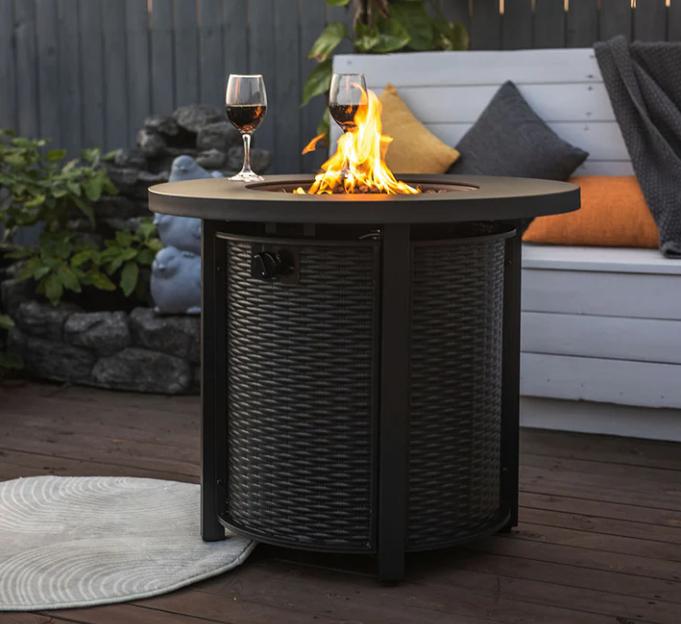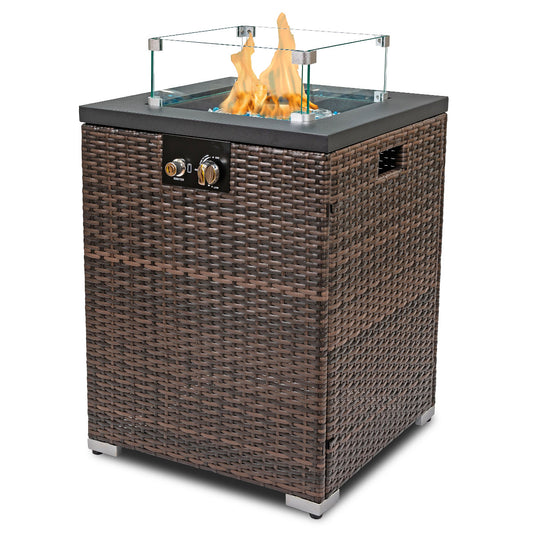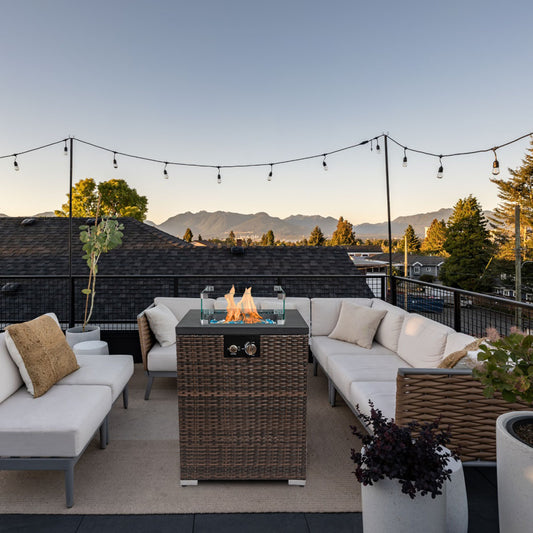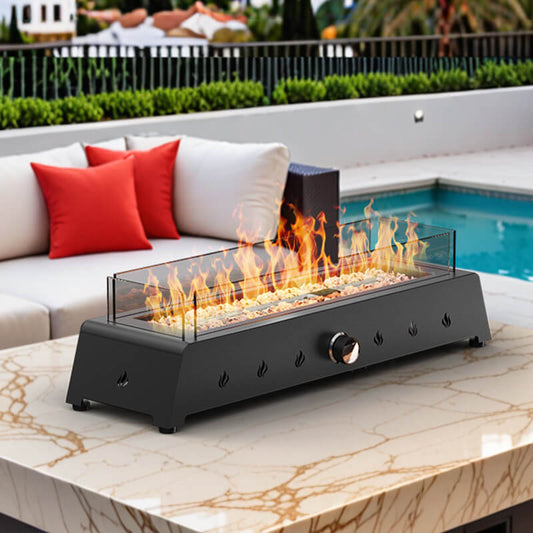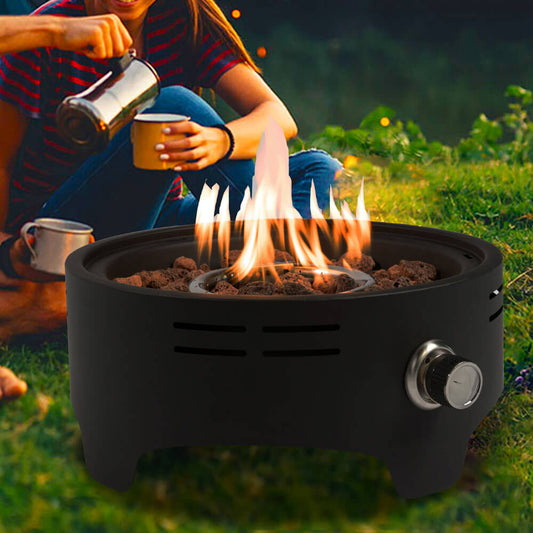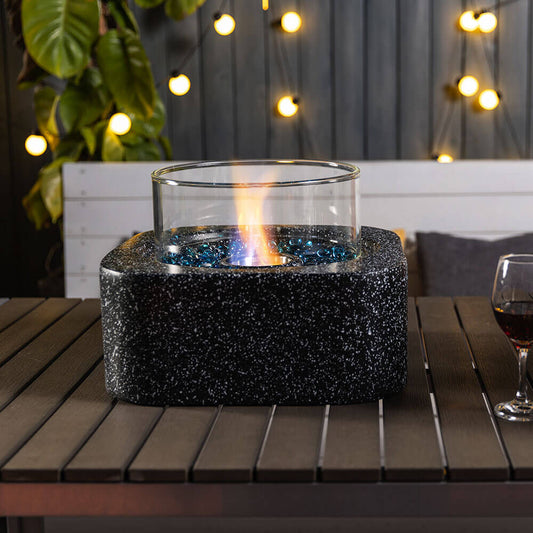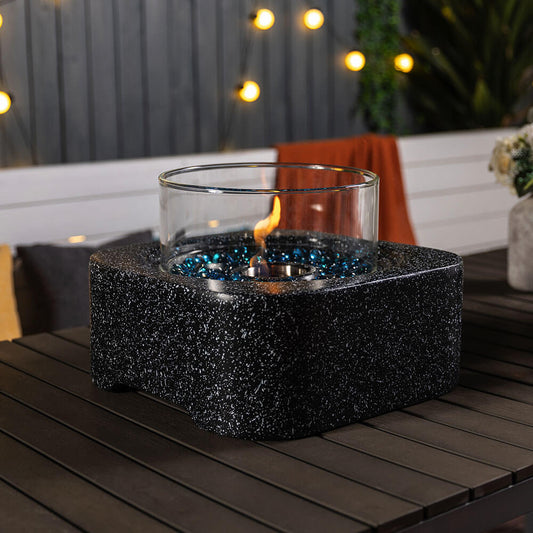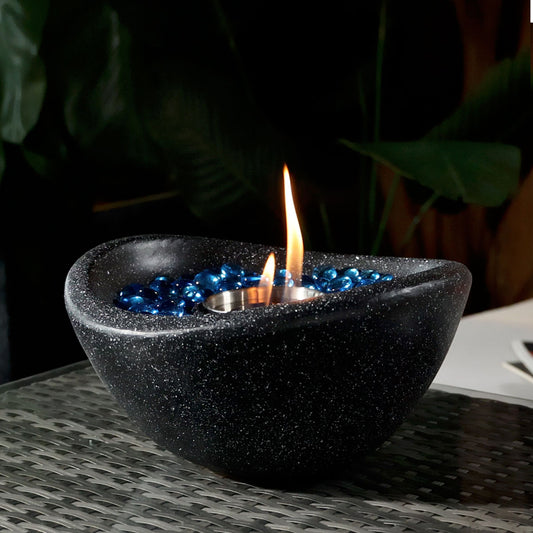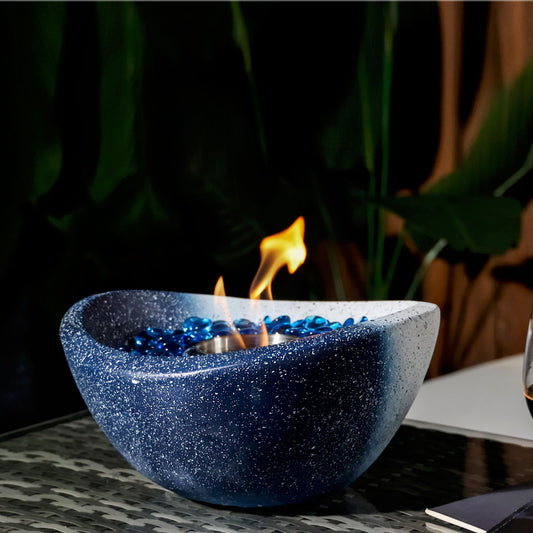Fire pits are an excellent addition to any outdoor space, providing both aesthetic appeal and functional warmth. Whether you're looking to enhance your patio, deck, or entertainment area, selecting the right fire pit requires an understanding of BTU ratings and how they impact heating efficiency. This guide will help you determine the appropriate BTU output for your needs, ensuring optimal performance and comfort.
Key Takeaways:
- For small to medium outdoor spaces, a fire pit with 40,000 to 50,000 BTU is typically sufficient.
- Larger outdoor areas or colder climates may require fire pit with up to 200,000 BTU.
- The ideal BTU rating depends on factors such as space size, sheltering, and local climate conditions.
What is a BTU?
BTU, or British Thermal Unit, is a standard unit of measurement for heat energy. One BTU is defined as the amount of energy required to raise the temperature of one pound of water by one degree Fahrenheit. In the context of fire pits, BTU ratings indicate the heating capacity and effectiveness of the unit.
Factors Influencing BTU Selection
When choosing a fire pit, consider the following factors to determine the appropriate BTU rating:
- Space Size: Larger areas require higher BTU outputs to ensure adequate heating.
- Sheltering: Open or exposed spaces may need higher BTUs to counteract heat loss from wind or lack of overhead cover.
- Climate: Colder regions benefit from higher BTU ratings to maintain comfortable temperatures.
BTU and Flame Characteristics
The BTU rating of a fire pit directly affects flame height and heat output. While taller flames are often associated with higher heat, flame color is also a key indicator of efficiency:
- Orange Flames: Provide a cozy ambiance but are less efficient in heat generation.
- Blue Flames: Indicate higher heat output and more efficient combustion.
The fuel type and air-to-gas ratio also influence flame characteristics and overall BTU performance.
Fuel Types and BTU Output
Different fuel types offer varying BTU outputs, which can impact the heating efficiency of your fire pit:
- Wood-Burning Fire pits:
-
Natural Gas Fire pits:
- BTU Range: 30,000 to 60,000 BTU.
- Suitable for homes with natural gas lines.
- Limited portability due to fixed gas connections.

-
Bioethanol Fire pits:
- BTU Range: 20,000 to 28,000 BTU.
- Clean-burning and eco-friendly but less efficient for outdoor heating.
- Best suited for indoor or small, sheltered outdoor spaces.

-
Propane Fire pits:
- BTU Range: 40,000 to 150,000 BTU.
- Highly portable and cost-effective.
- Offers a clean-burning flame with high heat output, making it ideal for most outdoor applications.

Choosing the Right BTU for Your Fire Pit
To determine the appropriate BTU rating for your fire pit, consider the following guidelines:
- 30,000 BTU: Suitable for small, well-sheltered spaces (up to 350 sq ft). Ideal for indoor use or mild outdoor conditions.
- 40,000 BTU: Effective for medium-sized areas (up to 550 sq ft). Provides robust heating for outdoor spaces with moderate exposure.
- 50,000 BTU: Best for larger or less sheltered areas (up to 700 sq ft). Offers strong heat output for colder climates.
- 200,000 BTU: Designed for very large spaces (up to 3,000 sq ft) or extreme cold. Typically used in commercial or expansive outdoor settings.
Comparing 40,000 BTU vs. 50,000 BTU Fire Pits
When deciding between a 40,000 BTU and a 50,000 BTU fire pit, consider the following:
| Feature | 40,000 BTU Fire Pit | 50,000 BTU Fire Pit |
|---|---|---|
| Heating Area | Up to 550 sq ft | Up to 700 sq ft |
| Outdoor Range | Up to 8 feet from the pit | Up to 10 feet from the pit |
| Recommended Fuel | Natural Gas or Propane | Propane |
| Price Range | 300−1,700 | 300−1,900 |
While a 50,000 BTU fire pit offers greater heating capacity, it may be excessive for smaller or well-sheltered spaces. Conversely, a 40,000 BTU unit may struggle to heat larger or more exposed areas. Choose based on your specific needs and space requirements.
Conclusion
Fire pits are a stylish and functional way to extend the usability of your outdoor space, especially during cooler months. By understanding BTU ratings and their relationship to heating efficiency, you can select a fire pit that meets your needs while minimizing operational costs. Whether you opt for a wood-burning, natural gas, bioethanol, or propane model, the right BTU rating will ensure a warm and inviting atmosphere for your outdoor gatherings.
